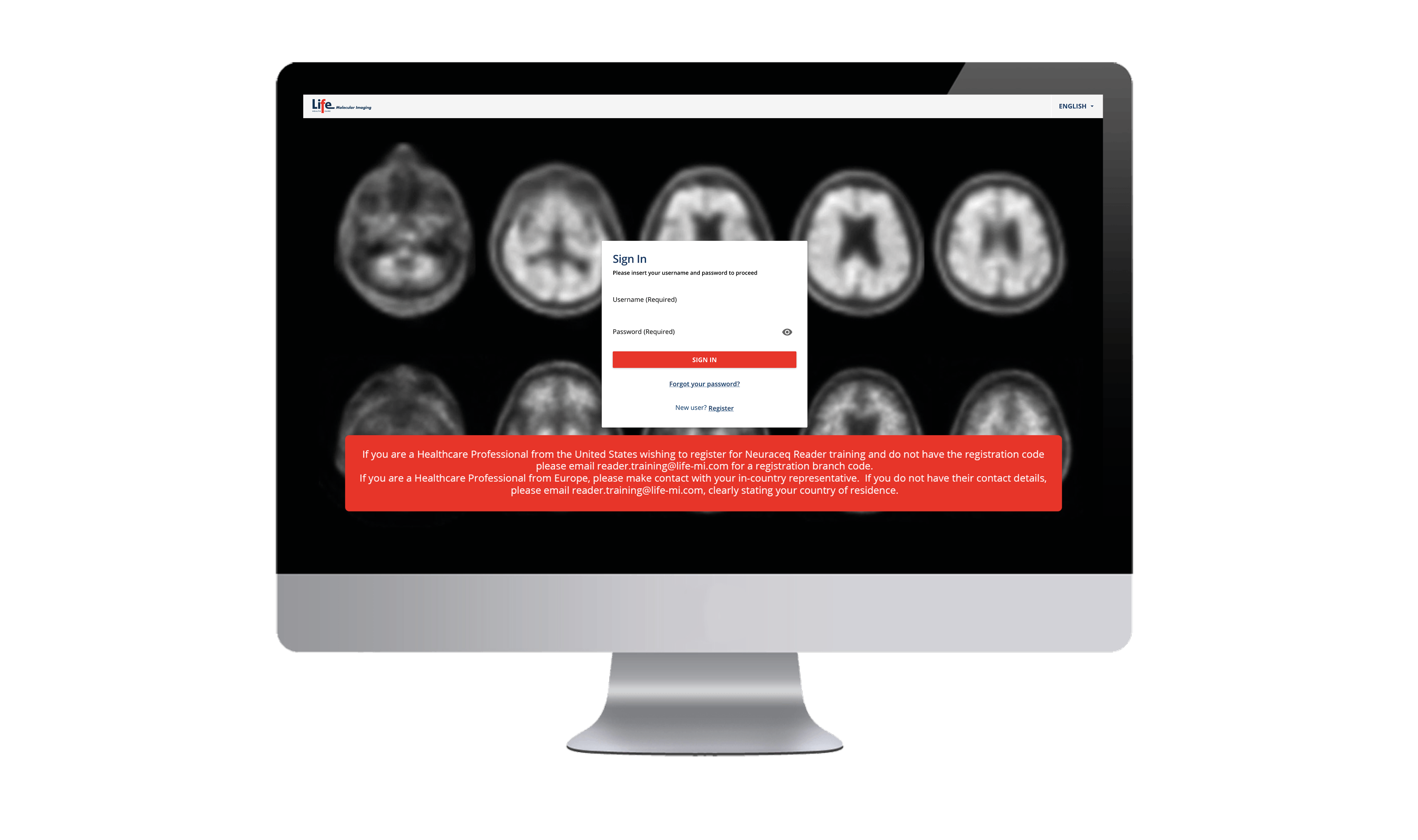First Scan Best Scan
First Scan Best Scan offers valuable resources on Neuraceq® that foster learning and development. We hope you take advantage of these resources available to you as needed.
If you are a Healthcare Professional from the United States wishing to register for Neuraceq® reader training and do not have the registration code, please email reader.training@life-mi.com for an access code.
If you are a Healthcare Professional from Europe, please make contact with your in-country representative. If you do not have their contact details, please email reader.training@life-mi.com, clearly stating your country of residence.
